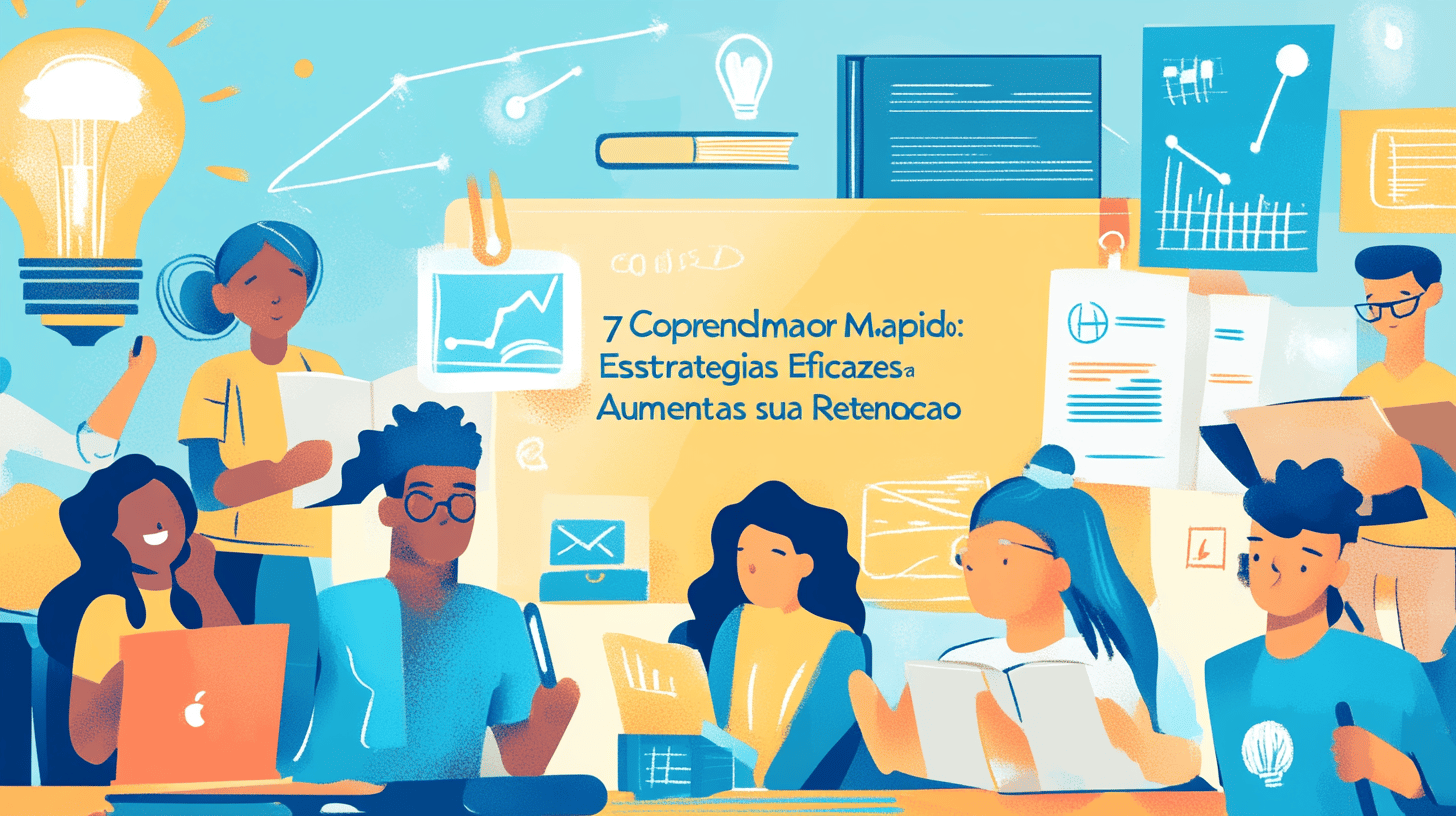O pedido constante por eficiência no aprendizado tem levado muitos a buscar métodos que não apenas acelerem o processo de aquisição de conhecimento, mas que também melhorem a retenção de informações a longo prazo. Neste artigo, abordaremos sete estratégias eficazes que podem revolucionar a forma como você aprende e permite que você absorva informações de maneira mais rápida e eficaz.
1. Aprendizado Ativo vs. Passivo
Os métodos de aprendizado ativo, como discutir o material, ensinar a outra pessoa ou aplicar o que aprendeu, são reconhecidamente mais eficazes do que as abordagens passivas, como a leitura ou escuta passiva de aulas. Ao engajar-se ativamente com o material, você facilita a retenção e a compreensão. Experimente formar grupos de estudo ou participar de fóruns onde você pode debater os conceitos aprendidos.
2. Técnica do Espaçamento
A técnica do espaçamento envolve distribuir a prática ao longo do tempo, em vez de concentrar o aprendizado em uma única sessão. Estudos mostram que revisitar o material em intervalos aumenta significativamente a capacidade de reter informações. Em vez de estudar intensamente por horas, tente fazer sessões curtas e frequentes. Por exemplo, em vez de 4 horas de estudo em um dia, divida essas horas em sessões de 1 hora ao longo de uma semana.
3. Use a Técnica Feynman
Desenvolvida pelo físico Richard Feynman, essa técnica consiste em ensinar o conceito que você está aprendendo a alguém que não tem conhecimento prévio sobre o assunto. O ato de simplificar e explicar em suas próprias palavras ajuda a identificar lacunas na sua compreensão e reforçar o que você já sabe. Quando você consegue ensinar um conceito de forma clara, é um sinal de que o dominou.
4. Conexões e Relações
Uma das chaves para a retenção de informações é conectar novos conhecimentos a informações que você já possui. Fazer associações e criar mapas mentais pode facilitar a integração das novas informações que você está absorvendo. Por exemplo, use analogias ou metáforas que liguem um novo conceito a algo familiar. Esta estratégia não apenas facilita a compreensão, mas também torna o aprendizado mais divertido e criativo.
5. Variedade de Métodos
Para ter um aprendizado mais abrangente, utilize diversos métodos de estudo. Isso inclui a leitura de livros, assistir a vídeos, participar de cursos online, ouvir podcasts, entre outros. O uso de múltiplas fontes e estilos de aprendizado pode melhorar a retenção e o entendimento. Experimente diferentes abordagens e veja quais combinam com seu estilo de aprendizado pessoal.
6. Práticas de Autoavaliação
Testar-se sobre o material aprendido é uma das formas mais eficazes de garantir que você realmente absorveu a informação. Realizar quizzes, questionários ou simplesmente escrever sobre o que aprendeu pode ajudar a solidificar o conhecimento e preparar sua mente para situações reais. Ao se avaliar, você não apenas reforça o que sabe, mas também identifica áreas que requerem mais atenção.
7. Estabeleça Objetivos de Aprendizagem
A definição de metas claras e alcançáveis para seus estudos pode fornecer um senso de direção e motivação. Ao estabelecer o que deseja aprender e em quanto tempo, você pode criar um plano de estudo que seja tanto realista quanto desafiador. Tente estabelecer metas de curto e longo prazo e, à medida que completa cada objetivo, você sente um senso de realização que pode impulsioná-lo a continuar.
Implementando as Estratégias
Agora que você conhece essas estratégias, é hora de implementá-las em sua rotina. Considere manter um diário de aprendizado onde você possa registrar suas metas, reflexões diárias sobre o que estudou e quais técnicas funcionaram melhor para você. O importante é estar aberto a adaptar e experimentar novos métodos, ajustando sua abordagem de acordo com suas necessidades.
Conclusão
Aprender de maneira eficiente e eficaz não é apenas sobre a quantidade de informação que você pode absorver em um curto período, mas também envolve como você se relaciona com o conhecimento. Ao adotar essas sete estratégias, você não apenas será capaz de aprender mais rápido, mas também reter o que aprendeu de forma significativa. Aproveite essas técnicas na sua jornada de aprendizado e veja como elas podem transformar sua maneira de estudar. E você, qual estratégia de aprendizado você pretende experimentar primeiro? Não hesite em comentar e compartilhar suas experiências conosco!



